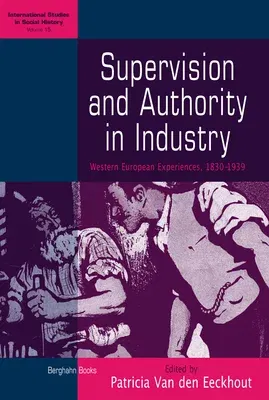Supervision and Authority in Industry: Western European Experiences, 1830-1939Hardcover, 1 August 2009

Qty
1
Turbo
Ships in 2 - 3 days
In Stock
Free Delivery
Cash on Delivery
15 Days
Free Returns
Secure Checkout

Part of Series
International Studies in Social History
Part of Series
International Studies in Social History, 15
Print Length
244 pages
Language
English
Publisher
Berghahn Books
Date Published
1 Aug 2009
ISBN-10
1845456009
ISBN-13
9781845456009
Description
Product Details
Book Format:
Hardcover
Country of Origin:
US
Date Published:
1 August 2009
Dimensions:
22.86 x
15.24 x
1.6 cm
Genre:
Historical
ISBN-10:
1845456009
ISBN-13:
9781845456009
Language:
English
Location:
New York, NY
Pages:
244
Publisher:
Weight:
498.95 gm